Modi’s promised Ram temple is set to open and resonate with Hindus ahead of India’s election
NEW DELHI (AP) — Frenzied preparations were underway Wednesday in India’s northern holy city of Ayodhya to mark the opening of a grand temple for Lord Ram, Hinduism’s most revered deity.
The Ram Mandir’s opening Monday would fulfill a decadeslong Hindu nationalist pledge that is expected to resonate with voters during the upcoming national election expected in April or May.
Several sprawling tent cities were being erected nearby to accommodate tens of thousands of devotees who are expected to attend. Dozens of private jets will fly India’s powerful elite, including top industrialists, movie stars and celebrities, to Ayodhya to see the ceremony. Prime Minister Narendra Modi’s government has planned live screenings across the country, as well as at some Indian embassies across the world.
Modi will be in attendance, alongside several Hindu priests, for the consecration ceremony in which a statue of Ram is to be placed in the temple’s inner sanctum.
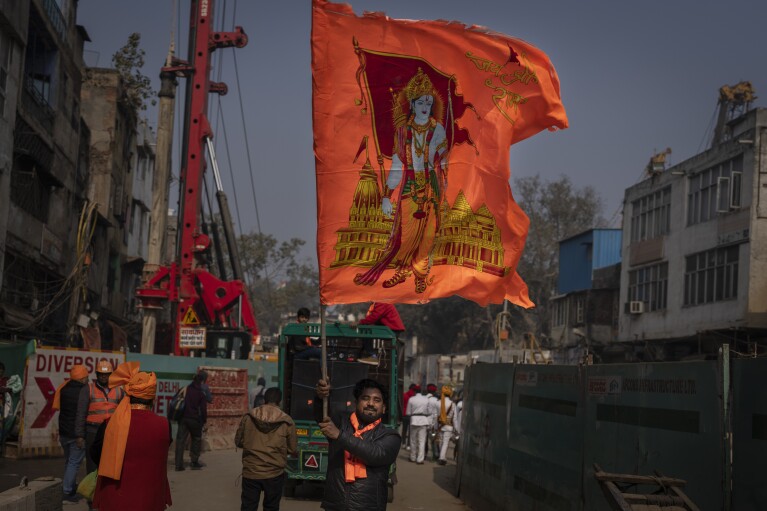
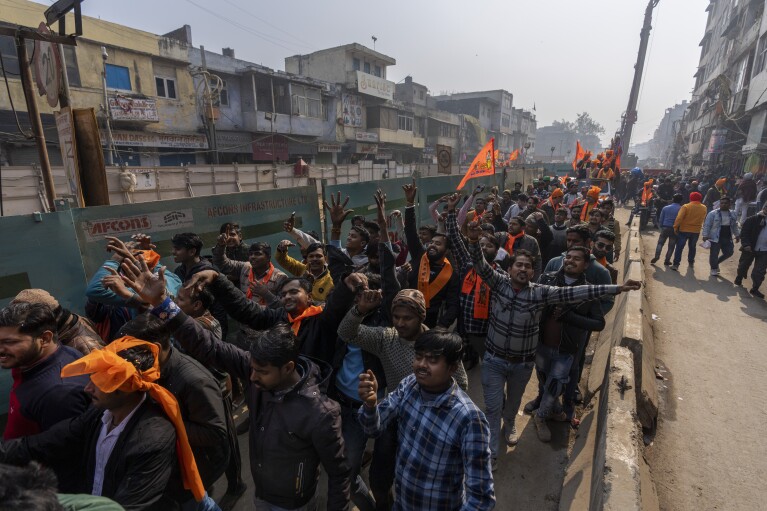
Modi’s ruling Hindu nationalist Bharatiya Janata Party has long campaigned for the temple to replace the 16th-century Babri Mosque that was demolished by Hindu mobs in 1992, sparking nationwide riots that killed more than 2,000 people, mostly Muslims. The decadeslong dispute ended in 2019 when, in a controversial decision, India’s Supreme Court granted the site to Hindus and gave a different plot of land to Muslims for a mosque.
The temple’s opening at one of India’s most contentious religious sites ahead of the national polls scheduled for the spring is expected to give major momentum to Modi as he looks to extend his rule for a record third-consecutive term by drawing on the religious sentiments of Hindus, who make up about 80% of India’s population.
The temple, a three-story structure clad in pink sandstone, stretches across 2.9 hectares (7.2 acres) in a 28-hectare (70-acre) complex. It will have a 1.3-meter (4.25-foot) idol of Lord Ram, whom Hindus believe was born at the exact site where the razed mosque once stood.

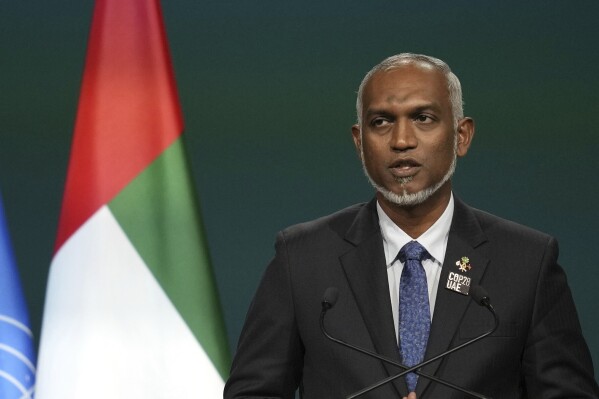
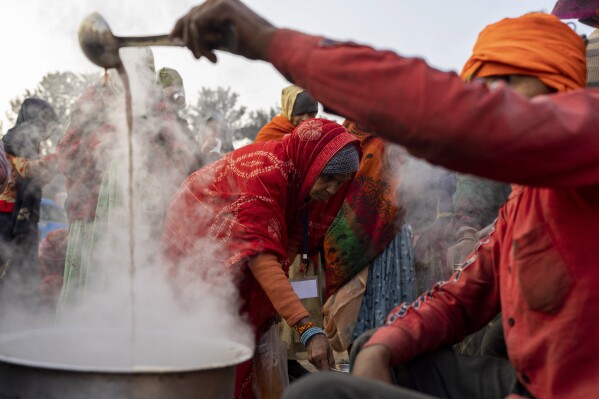
The city, once dotted with tightly packed houses and rundown stalls, is already witnessing an elaborate makeover.
Nearly 7,500 people are expected at the opening ceremony, and by the end of the year a staggering 100,000 devotees per day are predicted to descend on Ayodhya, according to official estimates.
The narrow roads have given way to four-lane pilgrim route, including the newly developed 13-kilometer (8-mile) Ram Path leading to the temple. The city boasts a new airport and a sprawling railway station with a daily passenger capacity of more than 50,000 people. Major hotel chains are building new properties and locals are converting their homes into homestays. Flower sellers and street food vendors, anticipating a surge in demand, have transformed their shops.
Ananya Sharma, a local tour operator, said Ayodhya’s transformation gained momentum after the 2020 groundbreaking ceremony of the temple, also attended by Modi.
“Subsequent development initiatives have elevated Ayodhya to a destination of both spiritual and economic significance,” Sharma said.
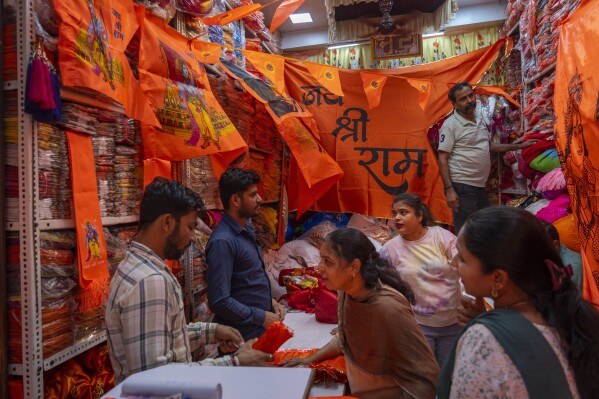
People buy flags of Hindu Lord Ram from a local shop in Mumbai, India, Tuesday, Jan. 16, 2024, ahead of the opening of the grand temple for the Lord Ram, Hinduism’s most revered deities in Ayodhya on Jan.22, 2024. (AP Photo/Rafiq Maqbool)
The temple is being built at an estimated cost of $217 million, but it is far from complete. The site is filled with roaring bulldozers and busy builders still working on the elaborate 46 doors — 42 of which will have a layer of gold totaling around 100 kilograms (220 pounds) — and numerous wall carvings that will form the final architecture of the temple.
At least two head priests from a Hindu sect have refused to go the opening ceremony, saying consecrating an unfinished temple goes against Hindu scriptures. Some top leaders from India’s main opposition Congress party have turned down invitations to attend, with many opposition lawmakers calling the temple a political project.
Across India, however, the mood among Hindus has reached a feverish pitch.
Politicians are visiting local temples and mopping the floors, obeying a directive that came directly from Modi. Indian TV channels are running wall-to-wall coverage ahead of the event. And volunteers from Modi’s party and other Hindu nationalist groups are going door to door, distributing religious flags and pamphlets.
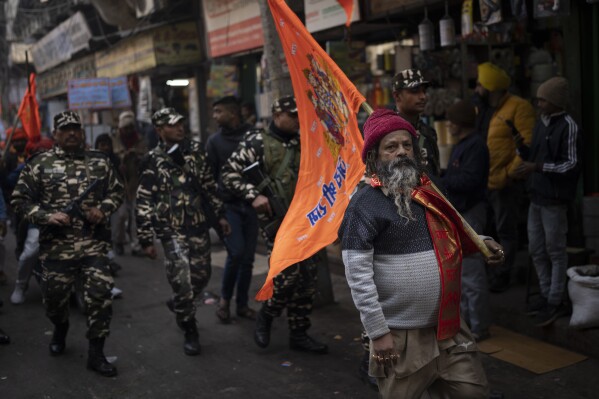
A Hindu man carries a flag featuring Hindu god Ram to celebrate the upcoming opening of a grand temple for the Lord Ram in northern Ayodhya city, during a procession in New Delhi, India, Tuesday, Jan. 16, 2024. (AP Photo/Altaf Qadri)
On a recent afternoon, Om Prakash Bhatia went to house after house in a New Delhi neighborhood inviting people to take part in Hindu ceremonies at local temples. Joined by other volunteers, he passed saffron flags — a color associated with Hinduism — to the residents, who presented him with marigold garlands and smeared vermillion on his forehead.
“Lord Ram is the center of our faith. After slavery and struggle of 500 years, finally the name of Lord Ram is victorious,” Bhatia said, referring to the Mughals who ruled India before the British colonized it.
He chanted “Jai Sri Ram,” or “Hail Lord Ram,” a slogan that has become a battle cry for Hindu nationalists, who claim the Muslim Mughal rulers destroyed Hindu culture. It has prompted Hindu nationalists to seek ownership of hundreds of historic mosques, sparking fears over the status of religious places for India’s Muslims, a minority community that has come under attack in recent years by Hindu nationalist groups who seek to turn officially secular India into an avowedly Hindu nation.
Many others shared Bhatia’s feelings about the temple’s opening.
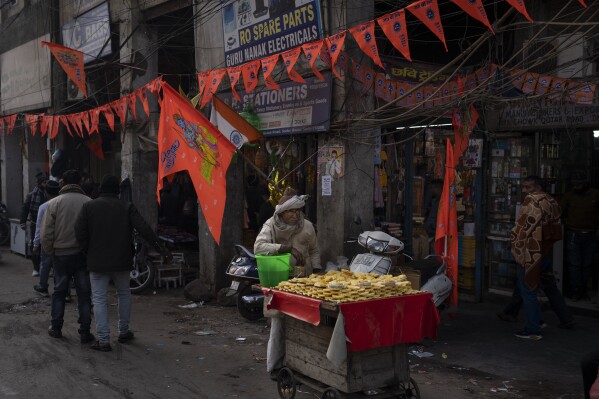
An elderly man selling pineapples waits for customers at a market decorated with flags featuring Hindu god Ram, in New Delhi, India, Tuesday, Jan. 16, 2024. (AP Photo/Altaf Qadri)
“I am very happy,” said Gaurav Shourey, a local resident. “While our ancestors saw the temples being destroyed, our generation takes pride in seeing the construction of them.”
___
Banerjee reported from Lucknow, India, and Associated Press video journalist Piyush Nagpal contributed from New Delhi.
Disclaimer: The copyright of this article belongs to the original author. Reposting this article is solely for the purpose of information dissemination and does not constitute any investment advice. If there is any infringement, please contact us immediately. We will make corrections or deletions as necessary. Thank you.



